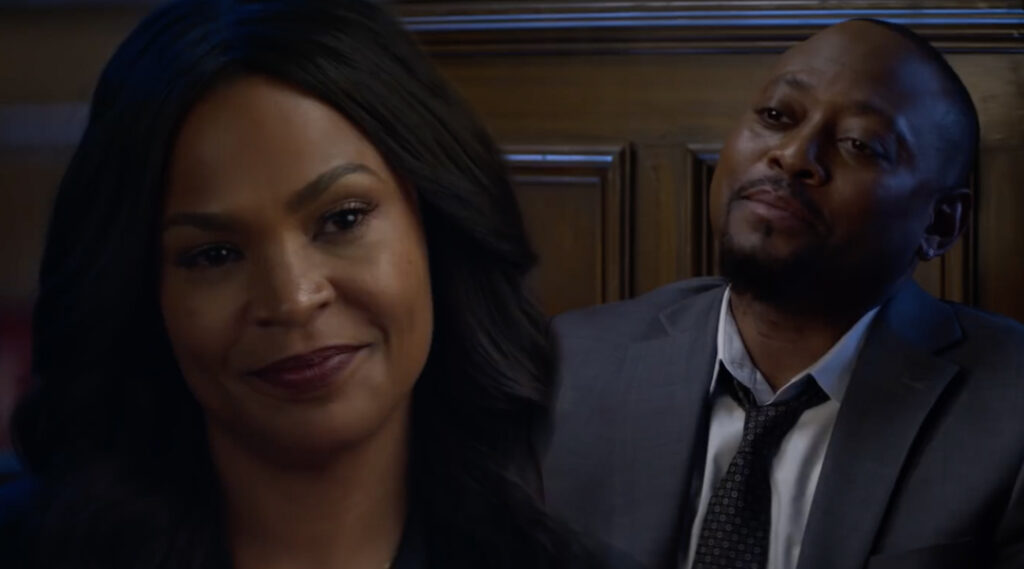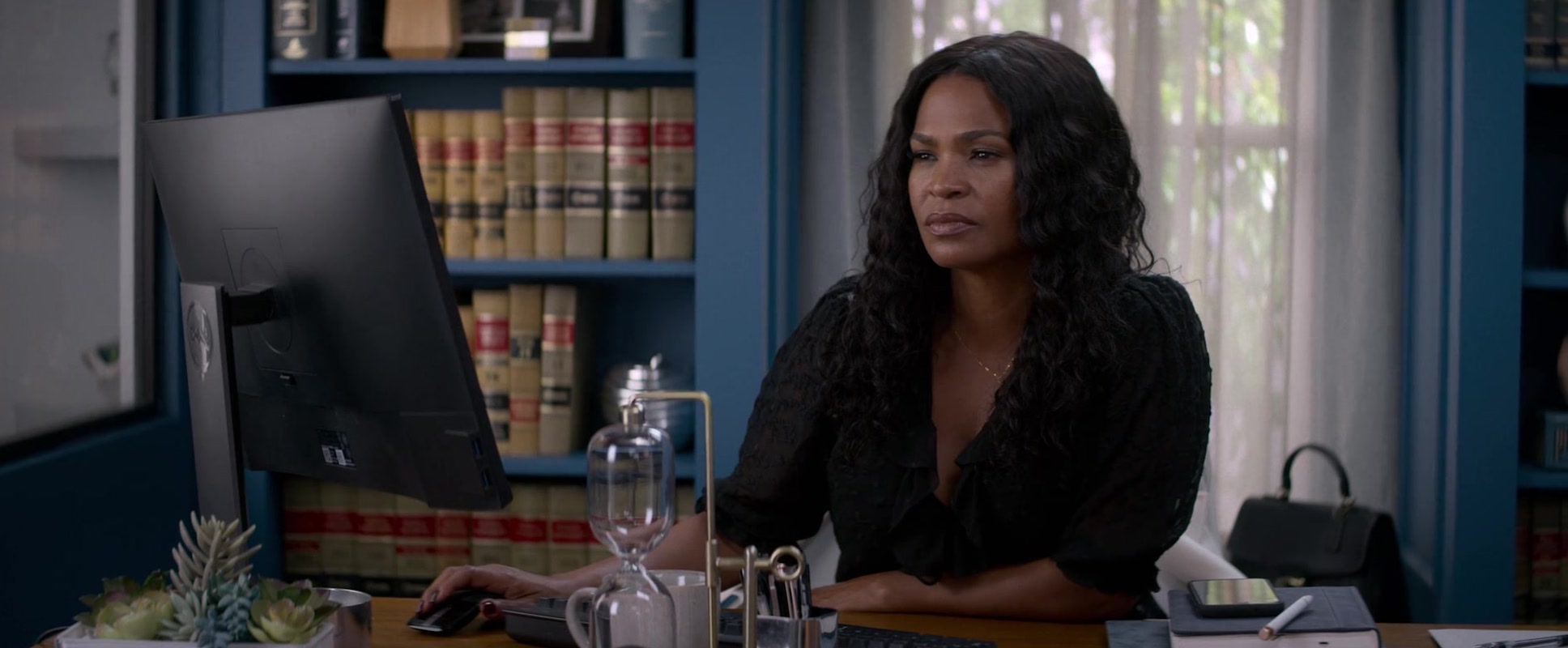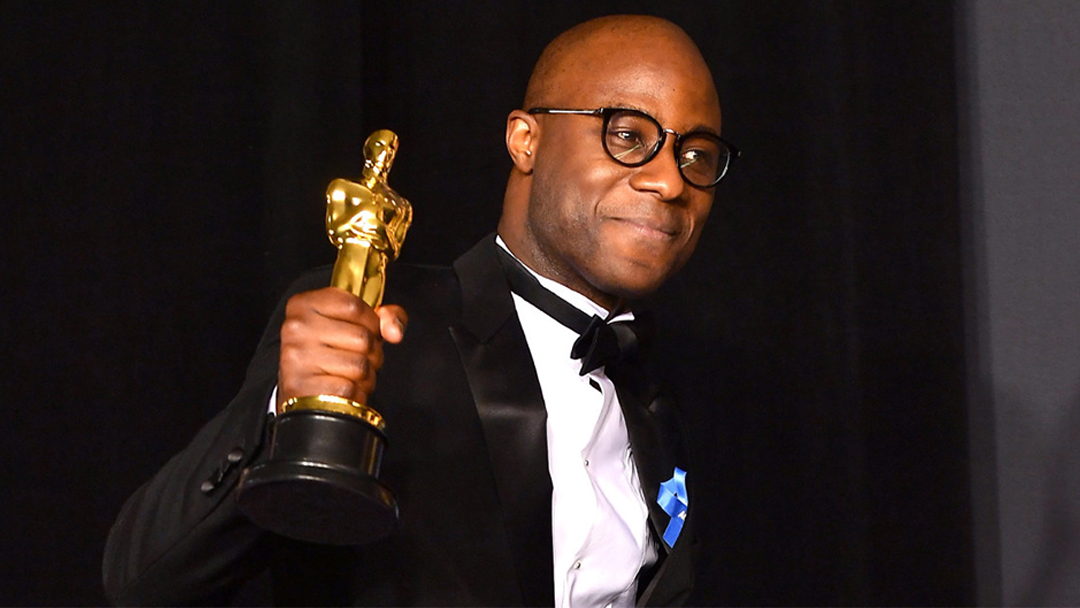There’s no question that Netflix has blazed many trails since their launch 23 years ago. They did what even HBO couldn’t (ie: kill Blockbuster) and effectively raised the bar on what our perceptions were of what “quality programming” could be.
This past June, they attempted to shift the landscape again by unveiling a “Black Lives Matter” subsection. Suddenly, it was easy for Black people to find content featuring others who looked like them. The very white Hart of Dixie TV series is sandwiched in-between very Black projects from Alfre Woodard and Deon Cole but what’s an algorithm without its kinks? They’re still doing better than most! But even if we put their solid aggregating aside, the fact that Netflix drops the ball when it comes to telling Black narratives is easy to see.
Case in point: Fatal Affair,a self-described psychological thriller released this past July.
For any fan of the genre, spending a tight ninety minutes watching a protagonist have their perfectly curated universe destroyed by a jaded lover is the perfect way to pass the time. Seeing Black actors lead the cast was a welcomed bonus. The cherry on top? Having two of those actors be Nia Long and Omar Epps. From Soul Food to Love & Basketball, these two have done enough to be certified as Black Hollywood royalty.

Here comes the bad news, though. Before I reached Fatal Affair‘s thirty-minute mark, I made the decision to abandon ship. Sure, the premise was unoriginal and the dialogue trite but that’s never been a deal-breaker for me in the past. After all, I love Lifetime Television movies and watched three seasons of Girls.
With this movie, though, I was incessantly nagged with a single question from the very beginning: why did every moment acted out feel detached from the people on screen? If the year 2020 has taught me anything, it’s to expect the unexpected. Still, I was shocked to find that Fatal Affair, a film touted as a Black story, was directed and co-written by a white man.
Nobody would be shocked at the statement that white men have too long sustained structures that favor them. This obviously includes entertainment industry. It’s these same men who yield too much power when deciding which stories get told and how. There is a continuous white-washing taking place in the images we are given. Because of this, it must be explicitly said that building a predominately Black cast for a film project does not make the story being told any less white. This is the central flaw with Fatal Affair.
The Last Black Man in San Francisco and Waves, two recent films with plots that centered Black men, were written-and-directed by white men. Similarly to Fatal Affair, these films present a specific type of frustration for Black cinema lovers like myself. Even with access to any number of streaming platforms, the novelty of seeing people that look like me on the silver screen has yet to wear off. It is why I didn’t hesitate to buy tickets to either films when they were in the theatre. Supporting Black talent in as many ways as possible is paramount.
Since it is equally crucial that we continue to show Black stories that aren’t monolithic, I was glad that these stories fell outside of the standard tropes of Black trauma porn (ie: slavery and/or cop brutality). Still, I couldn’t help but cringe whenever someone used the n-word onscreen. Knowing that its presence was written into the script or suggested as fair use by a white person was a small yet bitter pill to swallow. To reiterate, I want to support Black talent. But when does it become less about that and more about reinforcing the white gaze?
I can’t fault any of the actors or crew members involved with these films, either. When I see Black people being compensated for doing work that they love, I bubble over with joy. Outside of Fatal Affair, each performance in the aforementioned films deserve to be praised and critiqued.
Superficial accolades aside, I refuse to pat the film industry on the back for anything good that can be found within these movies. Hollywood is still doing the bare minimum and participation points will not be allotted. Not when those who parade Black people in front of the camera simultaneously disable so many of their voices from having an impact behind closed doors.
As we continue to push for more authentic representation throughout the storytelling process, there are examples of Black talent being embraced across the board. I’m talking about films like Tayarisha Poe’s Selah and the Spades and Prentice Penny’s Uncorked. I’m thinking of TV shows like Carlos Reginald King’s Styling Hollywood and Issa Rae’s Insecure. Each property is drastically different from the next, but they do share a common thread: the many ways in which Black people experience the world around us.

In Selah, we see a teenaged queen bee struggle to keep control of her minions. In Uncorked, the protagonist is on a quest of self-discovery which leaves his dad complexed and upset. With Styling Hollywood, we see a married couple outfit celebrities with red carpet looks and home decor upgrades. On Insecure, a 20something grapples with the uncomfortable growth needed to become the woman she dreams of being.
These struggles are not unique to Black folk. If anything, they’re some of the most universal plot points out there. So, could a white person write any of the scenes needed to bring those stories to life? Absolutely, but they will forever lose the nuances of Black culture and how it influences even the most minuscule reaction. Letting writers and directors who look like me create art about people who (wait for it) look like me just hits differently. With work that is both electric and alive, there is no shortage of Black creators who have picked up the needle and moved it forward.
Identifying as an ally of Black people and wanting to see greater equality is fantastic. Lip service, however, is not. Supporting Black people doesn’t mean peppering them around the room while still minimizing the validity of their voices. Studying, observing, and/or being around a specific culture will never be enough to tell an authentic story. That goes for any number of communities. Advancing the narratives of Black stories cannot be done by white people. Black artists, employees, and executives must drive those conversations. Otherwise, we will continue to witness an obnoxious erasure of representation.
So, greenlight more projects from Tayarisha, Prentice, Carlos, and Issa. Develop works of art from their friends. Stop gaslighting Black consumers with movies like Fatal Affair. Give Black creatives the mic, full stop, when it comes to telling their stories. I, for one, am eagerly waiting to stream, buy, and support them.



